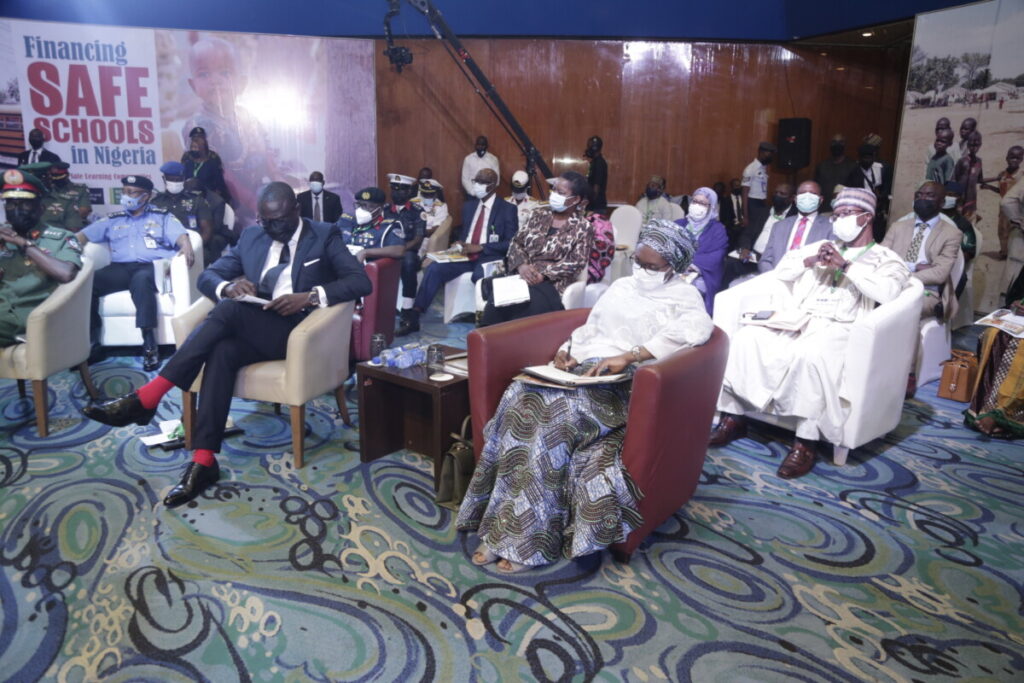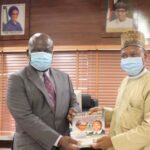In view of myriad challenges plaguing Nigeria, particularly those of insecurities and the COVID-19 pandemic, the federal government of Nigeria has opted for how to impact education and create safe learning communities across the country, more so using a high-level dialogue and well-thought-out event titled ‘Financing Safe Schools: Creating safe learning communities.’
The event which was recently hosted in Abuja by Mrs. Zainab Ahmed, Honourable Minister of Finance, Budget and National Planning, was against the fact that at the start of the pandemic, international projections had estimated that children missing out on five months of education would collectively result in $10 trillion in lost future incomes.
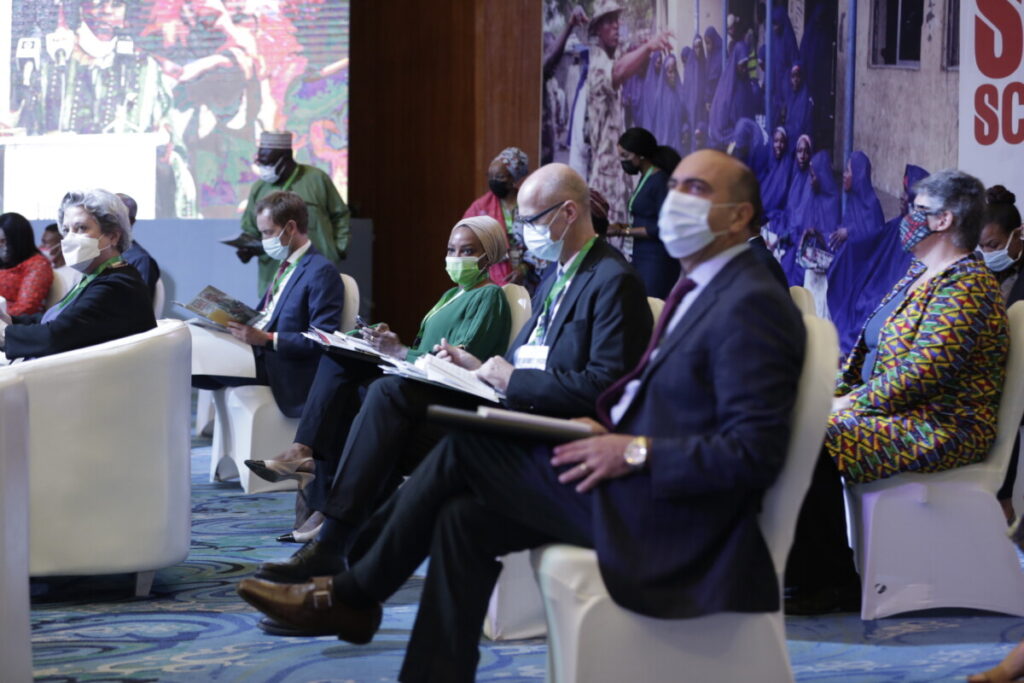
“If trends continue, the worse-case scenario predicted is that half of all young people will not have skills necessary for entry level employment reducing country workforces and moving the countries back into poverty,” she had said.
Of course, the country is facing education challenges born out of socio-economic crisis. As a result, history of poor education provision has been exacerbated by the pandemic, and conflict across the country has led to over 13 million children being out of school- the highest rate of out of school children in the world.
Mrs. Ahmed did note that ‘out of school children’ are especially vulnerable to exploitation and abuse and critically are ‘fundamentally ill-equipped’ to positively contribute productively to the economy.
Providing the basis for the gathering, she had actually cited a wide range of understandings, stating that the World Bank had coined the term ‘learning poverty’, which measures quality and quantity of learning in developing countries. Consequently, recent studies have shown that only 20 percent of children in the North East of Nigeria who complete primary school can read.
“Education is critical to Nigeria’s future given almost 44 percent of Nigeria’s population are between the ages of 0-14. The World Bank estimates that COVID-19 may have increased learning poverty from 53 percent to 63 percent in countries like Nigeria. The impact of out of school children in Nigeria is a structural impediment to Nigeria achieving the sustainable development goals (SDGs).
Notably on girls’ education and the gross domestic product (GDP), it was established that the impact of conflict on education is especially stark for girls with lower literacy rates across the country for females of 12 percent compared to males. Yet, reports on girls’ education do predict that making sure girls complete secondary education could boost developing country’s GDP by 10 percent and a return of investment of $2.8 for every $1 invested in girls education.
According to the Honourable Finance Minister, the combination of multi-dimensional attacks (in the North Eastern region) and the on-COVID-19 crisis means an urgent multi-dimensional approach is needed. “A number of critical issues need to be addressed in comprehensive strategies to facilitate sustained safe schools, safe education and sustained futures for Nigeria’s next generation.
She, along with other stakeholders, wish to redouble efforts to achieve a safe school environment so that Nigeria’s next generation can flourish and contribute to productive economies and societies.
A reimagined/revitalised sustainable strategy to finance and support safe schools is now aimed to increase enrolment in schools and make school environments safer. This is to be done through taking a multi-sectoral approach to developing and implementing the strategy, engaging key stakeholders across all Nigerian States, national and multilateral donors and the private sector, to garner firm commitments, foster expertise and develop accountability frameworks to embed drivers for sustained change and to push momentum forward.
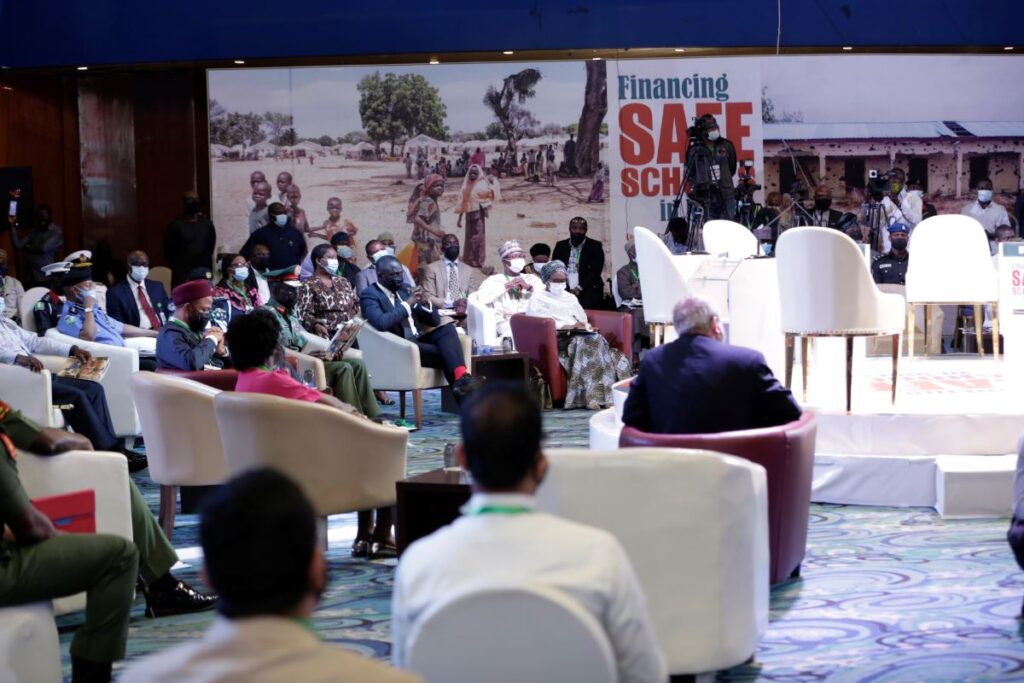
The dialogue was meant to bring together state governors, the Nigerian Governors Forum (NGF), National Economic Council (NEC), members of parliament, National Security Advisers and Security Chiefs, Ministry of Education, multilateral institutions, donors, civil society and private sector representatives, including Nigerian Economic Summit group (NESG) to address the urgent issues which are stopping the safe education of children – the Nigerian next generation.
Among others, the dialogue aims to achieve the following objectives: Re-engage senior policy makers including state governors, National Security Advisers, the Ministry of Education and others, to take a stand, acknowledge the emergency and commit to taking action to reverse the current trend in numbers of out of school children.
It looks to have stakeholders, especially security agencies and human rights organisations, develop cross sectoral strategies to implement the Safe Schools Declaration, including developing strategies with students and teachers to make it safe for children to return to school and build confidence in the education system.
The outcomes of the dialogue have been summarized, with a cross-sectoral working group formed to take recommendations and actions forward.
Against the fact that Nigeria at the moment sits on the brink of a socio-economic disaster with a full education crisis, the federal government has, as a matter of concern, brought to the fore that financing is critical to the successful implementation of any proposed interventions.
At the high level dialogue, which Gordon Brown, former United Nations (UN) Special Envoy for Global Education, was a participant, the Honourable Minister did say that the country might face a dire calamity if Nigerians do not act in a coordinated manner to stop the current wave of systematic attacks on the fundamental rights of the children.
Considering ‘An Urgent Call to Renew and Reimagine Our Commitment to Safe Schools in Nigeria’, Mrs. Ahmed said: “Today’s dialogue recognises the need for decisive action and for a coordinated approach to the financing and implementation of an integrated safe schools programme across the country, which is government-led and is tailored to the current realities on ground.”
According to her, Nigerians in recent times are looking to the government, institutions and well-meaning Nigerians to lead the way, “and we must heed the call to action, and we must all work together to realise the promise of safe school environments.” She stated that the programme was aiming at initiating a process towards renewing and reimagining the commitment to maintaining learning environments that are safe, secure and that protect the dignity of the children, their teachers, and school administrators.
“We in government recognise that to make the critical investments necessary to sustainably secure our schools and ensure a holistic and community-centered approach to safe schools programmes, we must address the longstanding challenge of domestic revenue mobilisation. This process is already ongoing through the implementation of fiscal reforms, including Finance Acts 2019 and 2020.”, she said.
Mrs. Ahmed noted that the event was an opportunity for Nigerians to come together to renew and reimagine the country’s commitment to ensuring safe schools for the children. “This process must be government-led, it must be strategic, and it must result in a multistakeholder framework and plan of action that ensures that any planning we do today is sustainably financed,” she emphasised.
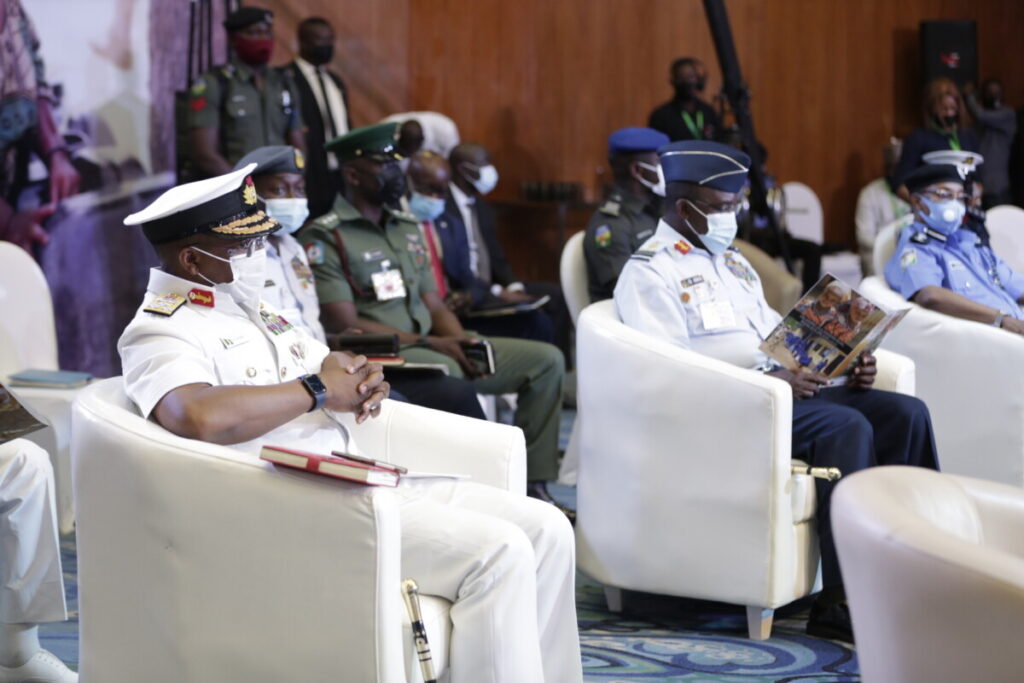
“While much progress has been made through the safe schools initiatives (SSI) and other programmes, (which many of your organisations are supporting), we have a long way to go, and there is need to reimagine, institutionalise, and scale our safe schools programmes. Even before the pandemic, Nigeria accounted for approximately 20 percent of the global out-of-school population.
“With an estimated 13 million children currently out of school in the country, parents are increasingly more nervous about sending their children, and particularly their young girls to school, with some choosing to withdraw existing students. The time to act is now.
Mrs. Ahmed noted further that COVID-19 pandemic and the resulting economic crisis have posed unprecedented challenges globally and here in Nigeria. While the country has been proactive in its response to the pandemic and has established and is implementing the Economic Sustainability Plan (ESP), and other interventions (including the scaling up of social safety net programmes, and has increased investments in health and education), the pandemic has deepened insecurity across the country and resulted in an alarming spate of school attacks and mass kidnappings.
“These actions are a direct attack on our children’s fundamental human rights to ‘an education without fear of violence or attack,’ as described in the Safe Schools Declaration, to which Nigeria is a signatory. In fact, we were among the first 37 United Nations (UN) Member States to endorse the Declaration.
In 2014, following the abduction of over 200 girls by Boko Haram from a secondary school in Chibok, the government, alongside Mr. Gordon Brown and several development partners and private sector stakeholders, launched the SSI.
Furthermore, “we are working to develop the second phase of the strategic revenue generation initiatives (SRGI), a multiagency programme originally launched in 2019, with prioritised initiatives across three thematic areas: Achieving sustainability in revenue generation; identifying new and enhancing enforcement of existing revenue streams; and achieving cohesion in the revenue ecosystem (people and tools).
As part of the initiative, it was made that Nigeria is also exploring how to make the revenue administration processes more efficient, recognising resource constraints particularly post pandemic. Understandably, even with the aforementioned efforts, the fiscal space remains constrained with the COVID-19 response having required increased borrowing in Nigeria, as it has in other countries across the globe.
Considering the thematic areas of concerns, Mrs. Ahmed is calling for it to be imperative that Nigerians work to collaboratively (across government, and with the private sector and international development partners) develop funding strategies to drive the creation of safe education environments.


